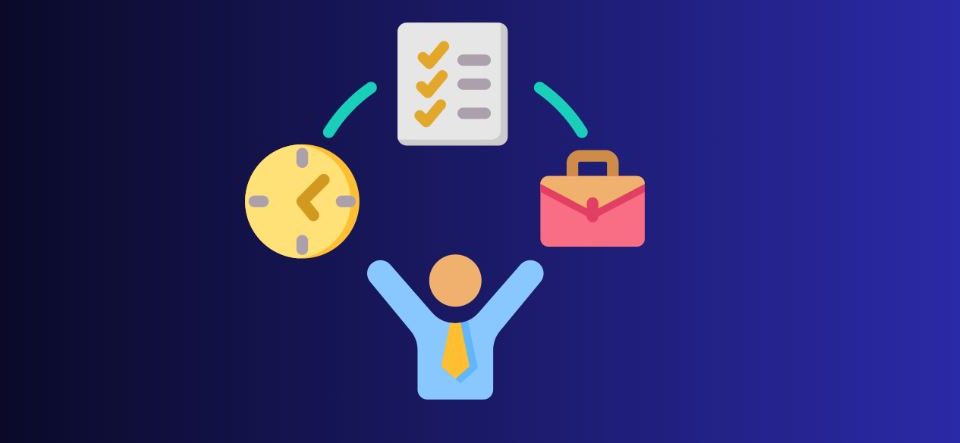In today’s rapidly evolving digital landscape, technological advancements are transforming industries and redefining the way we work. Automation, artificial intelligence (AI), and machine learning are taking over repetitive tasks, leaving room for employees to focus on roles that require uniquely human capabilities. Amid this shift, employers are increasingly prioritizing soft skills—the interpersonal and emotional competencies that technology cannot replicate.
The Changing Face of Work
The age of digital transformation has ushered in a new era of efficiency, innovation, and connectivity. However, while technical skills such as coding, data analysis, and digital literacy remain essential, they alone are no longer sufficient. According to a 2020 LinkedIn report, 92% of talent professionals stated that soft skills are as important or more important than technical skills (LinkedIn, 2020). As machines handle routine tasks, employers are seeking individuals who can navigate complexity, build relationships, and drive innovation through collaboration and creativity.
This shift highlights the growing importance of soft skills, which enable employees to adapt to change, communicate effectively, and contribute to a positive workplace culture. In a world where job roles are becoming more dynamic, these skills are indispensable.
Top Soft Skills Employers Value
- Emotional Intelligence (EI): Emotional intelligence—the ability to understand and manage one’s emotions while empathizing with others—is a cornerstone of effective leadership and teamwork. Employees with high EI are better equipped to handle conflict, provide constructive feedback, and foster strong relationships, all of which are vital in a collaborative work environment (Goleman, 1995).
- Communication Skills: Clear and persuasive communication is critical, especially as teams become more remote and global. A 2021 McKinsey study found that 75% of executives identified communication as a top skill for navigating the challenges of hybrid work (McKinsey & Company, 2021).
- Adaptability: In a fast-paced digital world, change is constant. Employers value individuals who are agile and open to learning new tools, technologies, and processes. Research from the World Economic Forum (2020) highlights adaptability as one of the top 10 skills for 2025, emphasizing its role in future-proofing careers.
- Collaboration and Teamwork: Complex problems often require interdisciplinary solutions. Collaborative skills enable employees to work harmoniously in diverse teams, leveraging collective expertise to achieve shared goals. According to a Deloitte study, teams with high collaboration experience a 30% improvement in performance (Deloitte, 2021).
- Creativity and Innovation: As automation takes over routine tasks, creativity becomes a key differentiator. Employees who can think outside the box and propose innovative solutions are instrumental in driving organizational growth and staying ahead of the competition (IBM, 2021).
- Problem-Solving: Critical thinking and problem-solving are indispensable in navigating uncertainty and making data-driven decisions. These skills allow employees to analyze challenges, weigh options, and implement effective strategies (World Economic Forum, 2020).
- Leadership: Strong leaders inspire teams, set clear visions, and drive results. Leadership skills extend beyond managerial roles, as they encompass the ability to influence, mentor, and motivate others.
Why Soft Skills Matter in the Digital Age
Soft skills bridge the gap between technical expertise and practical application. In the age of digital transformation, organizations are dealing with complex, interconnected challenges that require more than technical know-how. For example:
- Customer-Centric Approaches: Companies are prioritizing personalized customer experiences. Employees with empathy and communication skills can better understand customer needs and deliver tailored solutions (PwC, 2021).
- Diverse Workforces: Globalization has created diverse teams with varied perspectives. Strong interpersonal skills help employees navigate cultural differences and foster inclusive environments.
- Hybrid and Remote Work Models: Virtual collaboration demands trust, clear communication, and accountability. Soft skills ensure teams remain cohesive and productive, regardless of physical location.
Developing Soft Skills
Recognizing the importance of soft skills, organizations are investing in training programs that focus on their development. Employees, too, can take proactive steps to enhance their soft skills:
- Seek Feedback: Regular feedback from peers and mentors can help identify strengths and areas for improvement.
- Practice Active Listening: Paying full attention during conversations fosters better understanding and relationships.
- Participate in Team Projects: Collaborative projects provide opportunities to hone teamwork and problem-solving skills.
- Engage in Continuous Learning: Online courses, workshops, and self-reflection are excellent tools for personal growth.
Conclusion
In the age of digital transformation, soft skills have emerged as a critical component of professional success. They complement technical expertise and empower employees to navigate the complexities of a rapidly changing world. By cultivating emotional intelligence, adaptability, communication, and other soft skills, individuals can future-proof their careers and contribute meaningfully to their organizations. As technology advances, it is our uniquely human abilities that will define the future of work.
References
Deloitte. (2021). The connected workforce: Unlocking the potential of collaboration. Retrieved from https://www.deloitte.com
Goleman, D. (1995). Emotional Intelligence: Why It Can Matter More Than IQ. New York: Bantam Books.
IBM. (2021). Creativity in the workplace: The key to innovation. Retrieved from https://www.ibm.com
LinkedIn. (2020). The future of skills report. Retrieved from https://www.linkedin.com
McKinsey & Company. (2021). Hybrid work and the new normal. Retrieved from https://www.mckinsey.com
PwC. (2021). Customer experience in the digital age. Retrieved from https://www.pwc.com
World Economic Forum. (2020). The future of jobs report. Retrieved from https://www.weforum.org




